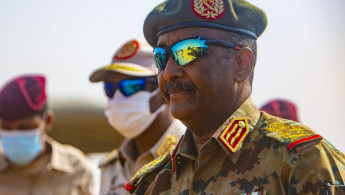Sudanese PM civil society rally for civilian-led government
Sudanese Prime Minister Abdalla Hamdok has rejected a request made by members of the Sudanese military on Thursday to dismiss his cabinet and form a new government.
On the same day, hundreds of lawyers and jurists demonstrated outside of the presidency in the Sudanese capital Khartoum, calling for reform of the security and military agencies and the handover of power to a civilian government. Lawyers delivered a memorandum to military elements of the ruling transitional council, urging them to hand over power.
More demonstrations are scheduled on Saturday 16 October.
The request to dissolve the civilian-headed government came from army general Abdel Fattah al-Burhan, who leads the Sovereignty Council, a collective head of state composed of six civilians and five members of the armed forces.
The Council was formed in the aftermath of the military coup that removed the previous president, Omar al-Bashir, from power in April 2019. It has ruled Sudan since August 2019, based on a power-sharing plan negotiated between the Sudanese army and civilian opposition groups united under the “Forces of Freedom and Change” coalition.
Tensions have skyrocketed between military and civilian components of the Council as November 17, the planned date for the handover of the chairmanship of the Sovereign Council to a civilian, draws near. The Forces of Freedom and Change accuse General Burhan of trying to stay in power instead of handing over.
|
On Thursday, demonstrators also called for Bashir to be handed over to the International Criminal Court (ICC).
Bashir, who headed Sudan since 1989, is accused of crimes against humanity, war crimes and genocide. The United Nations estimates that 300,000 people were killed and 2.5 million displaced in the western region of Darfur since a civil conflict erupted in 2003, over which Bashir presided.
Although al-Bashir was indicted by the ICC in 2009, his position as a head of state enabled him to evade trial until he was deposed in the 2019 coup.
In August, Sudan’s cabinet committed to hand al-Bashir, who is now incarcerated in Sudan, to the ICC. However, the process has stalled for lack of approval from the Sovereignty Council.
Sudan's transitional rule was left shaken after a coup attempt last month. Politicians blamed the attempt on Bashir loyalists in the army, while the military blamed it on inaction from politicians.





 Follow the Middle East's top stories in English at The New Arab on Google News
Follow the Middle East's top stories in English at The New Arab on Google News


